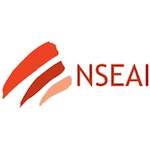
Social Cognition
Jul 10, 2022Functional social competence is the effective and fluent use of social awareness, social processing, social skills, and social cognition to interpret and analyze social environments and use social behavior to achieve one’s individual and group goals. This is done through the flexible use of internal and external social, emotional, cognitive, behavioral, and motivational skills across multiple environments, novel situations, and persons so to respond and communicate in socially acceptable and expected manners.
For the school district to respond to any deficit in functional social competence, it has to be made clear how a given deficit affects access to education. “What does it look like?” becomes a mantra and a necessary way to communicate not only the consequences of a lack of social cognition but also how those deficits feed bias and affect academic learning. When a child has a lack of social cognition, their verbal communication errors are frequently viewed as a lack of intellectual ability or being dumb. On the other hand, nonverbal communication errors are viewed as a lack of mental stability or dangerousness. When you put these errors together many people get very uncomfortable since these actions are not predictable. It is therefore imperative that all school staff is equipped to react in a way that minimizes negative attention and helps the child learn appropriate responses.
LACK OF SOCIAL COGNITION CONSEQUENCES
The consequences of having a lack of social cognition can include:
- Rejection
- Teasing
- Withdrawal and isolation
- Bullying – which bythe way is not a rite of passage. It is a pervasive symptom of widespread fundamental needs not being met.
- 88% of elementary and middle school students (US data) see it or experience it regularly
- 19% of students make daily decisions based on bullying behaviors
- Humiliation on a daily basis
- Loss of motivation
- Helplessness
- Being Ignored
- Anxiety
- Acting out behaviors in school and at home
- Shunning
- Equal to execution in some cultures
- Supreme Court / cruel and unusual punishment
- Banishment
- Loneliness
- School Avoidance
- Depression
- Low self esteem
- Other mental health issues / suicide
- Poor social problem-solving skills
- Poor employment outcomes
- Poor adult functionality and happiness
- Lack of positive relationships
SOCIAL COGNITION AFFECTS ACADEMIC LEARNING
While we can list areas of need related to social cognition, it is frequently necessary for the advocate to become very specific with examples before the school district will take on any responsibility in that regard. It also allows the advocate through their examples to focus the district on the area of greatest need.
Areas of need related to social cognition
- Perspective taking with reading (Red Riding Hood/ Wolf)
- Applying lessons in History to today
- Predicting – Mind Reading
- Applying empathy (identification, emotional contagion, true empathy, ToM, perspective taking vs. cognitive empathy
- Problem solving
- Negotiation
- Cause and Effect – Social Judgement
- Considering others with their actions
- Poor peer interactions or rejections.

The IEP DEVELOPMENT EXPERTS
Make sure you SUBSCRIBE to the blog.
NSEAI's online courses efficiently lead parents and professionals to an expert level of education advocacy in just 12 days of on-demand courses that you can do at your convenience.
OUR CHILDREN DO NOT HAVE TIME TO WASTE.
LEARN TO DEVELOP A CHILD-FOCUSED IEP CORRECTLY FROM THE START vs JUST ACCEPTING A LEGALLY SUFFICIENT ONE!
CHANGE THEIR LIVES NOW
AUTHORS
Marie Lewis is an author, consultant, and national speaker on best practices in education advocacy. She is a parent of 3 children and a Disability Case Manager, Board Certified Education Advocate, and Behavior Specialist Consultant. She has assisted in the development of thousands of IEPs nationally and consults on developing appropriately individualized IEPs that are outcome-based vs legally sufficient. She brings a great depth of expertise, practical experience, and compassion to her work as well as expert insight, vision, and systemic thinking. She is passionate and funny and she always inspires and informs.
MJ Gore has an MEd in counseling and a degree in elementary education and natural sciences. She worked as a life-skills and learning support teacher She has been honored with the receipt of the Presidential Volunteer Service Award. She is the Director and on the faculty at the National Special Education Advocacy Institute. Her passion is social justice, especially in the area of education. She is a Board Certified Education Advocate who teaches professional advocates, educators, and clinicians the best practices in education advocacy.
